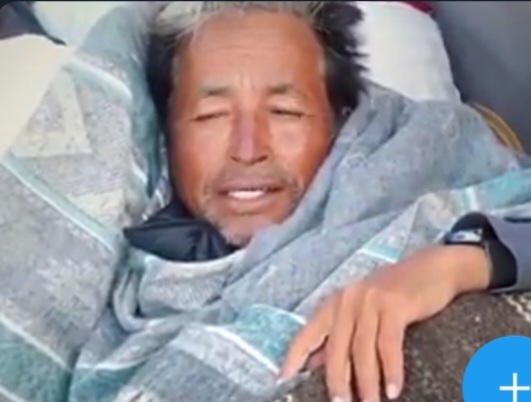SHIMLA/LEH: Enduring bone-chilling temperatures of -8°C, Sonam Wangchuk's determination still unwavers after 16 grueling days of fasting unto death for climate justice in Ladakh.
Alongside 120 others, he fights on, sustaining themselves solely on water and salts.
But as weakness and fatigue sets in, and Wangchuk's health declines, the Prime Minister's Office (PMO) remains deafeningly silent.
Drawing parallels to past movements led by figures like Anna Hazare and Mahatma Gandhi, Wangchuk emphasizes the urgency of his cause reminding the ruling BJP government of what the party had promised in its last election Manifesto- protection for Ladakh under sixth schedule.
Yet, despite his sacrifice and the mounting pressure on social media with hashtags like #SaveLadakh and #SaveHimalayas, the PMO shows no signs of sensitivity towards what has has been saying for months so far.
Wangchuk's struggle mirrors historical fasts that compelled governments to act.
In 2011, Anna Hazare's hunger strike pushed Parliament to pass the Lokpal Bill.
In 1933 and 1943, Mahatma Gandhi's fasting led to pivotal decisions for India.
However, the PMO's indifference to Wangchuk's plight reflects a stark contrast to past responses to people's movements.
The Ladakhi activist's declining health serves as a grim reminder of the harsh reality faced by those fighting for environmental justice. There are over 150 more Ladakhis languishing in the open in the biting cold in winter in Ladakh.
Surviving in Ladakh's hostile climate, Wangchuk's weakening condition not only has raised concern of Ladakhis, but also countless others across the nation, who have been supporting him, underscoring the urgent for government action.
Despite Wangchuk's resolve to continue his fast, the silence from the PMO speaks volumes. As the nation watches, the question remains: will the government heed the call for action before it's too late?






